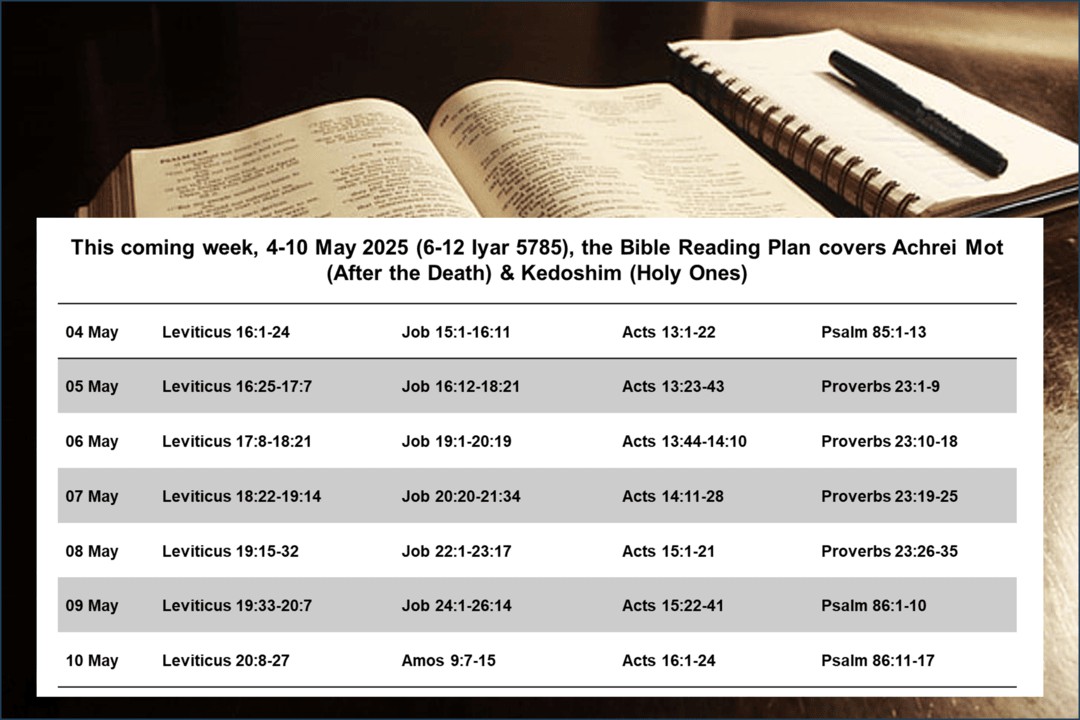Watch
Events
Articles
Market
More



https://torahtent.com/Omer2025.php
Today is the 14th day of the Omer.



This coming week, 4-10 May 2025 (6-12 Iyar 5785), the Bible Reading Plan covers Achrei Mot (After the Death) & Kedoshim (Holy Ones)
https://thebarkingfox.com/2024..../10/08/read-through-




GidgetsMom
Delete Comment
Are you sure that you want to delete this comment ?
Evangelist Moon Gulzar
Thanks, actually a Torah observant Sister living and doing ministry in Taxes gave me this document to translate into Urdu Language. I loved this amazing deep knowledge and then i requested her for sharing permissios.
Delete Comment
Are you sure that you want to delete this comment ?